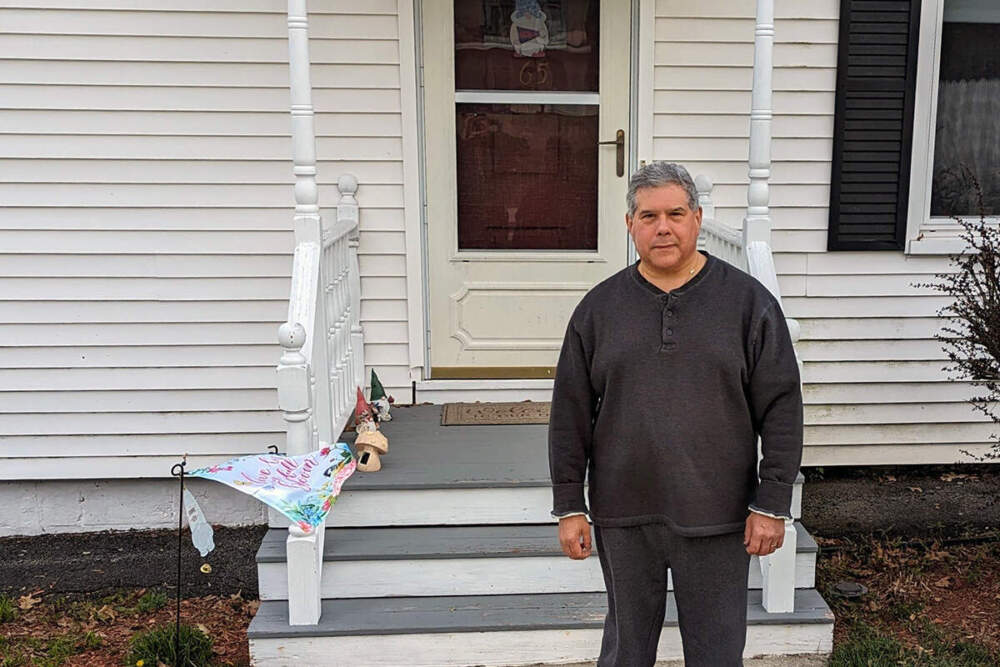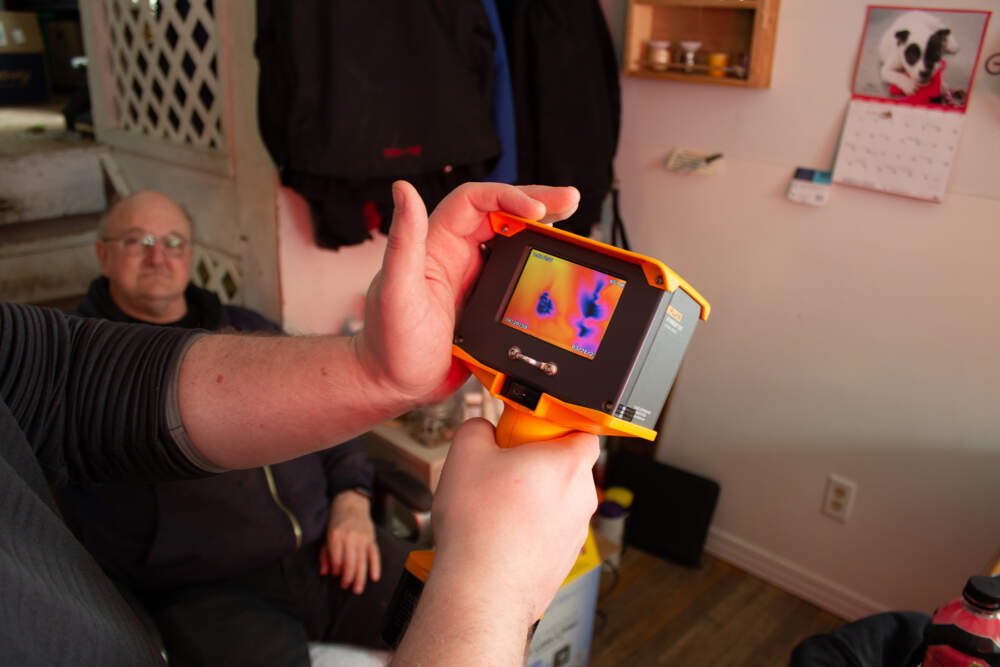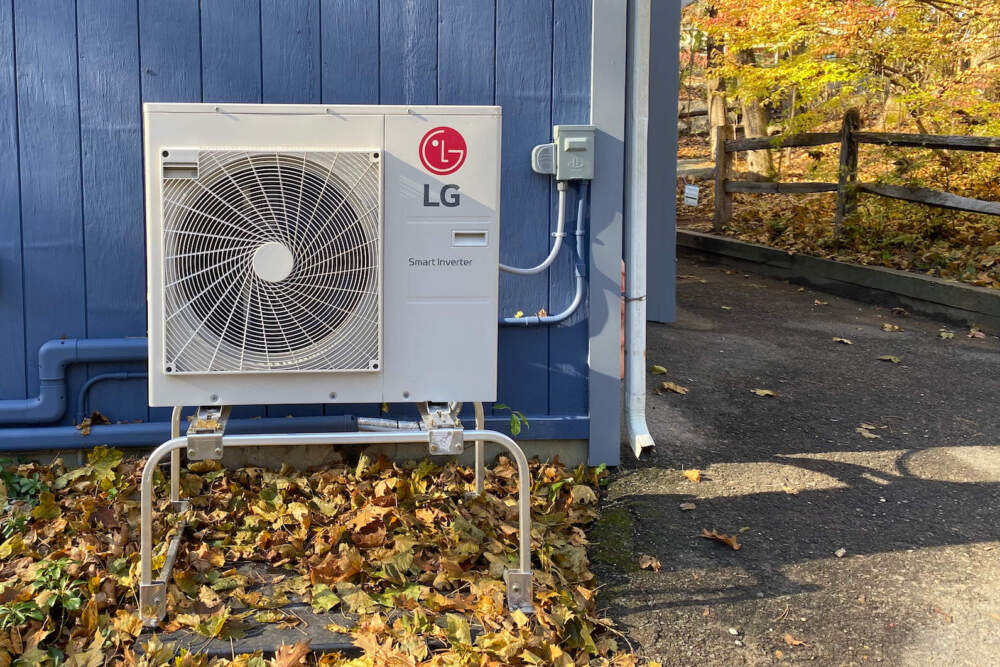Advertisement
¿Necesitas ayuda con las facturas? Bringing energy savings to all Mass. communities

Francisco Tapia has long struggled with protecting his family from the penetrating cold that seeps through the poorly insulated walls of his modest home in Lowell.
Originally from the Dominican Republic, the winter months in Massachusetts feel particularly harsh. Tapia used to cover his windows with makeshift plastic sheets in a desperate attempt to keep the cold at bay, but still his family struggled to keep the home warm.
One day, amid the usual clutter of unwanted mail, Tapia received a letter from Mass Save, the state’s energy efficiency program. It was written in English, a language he struggled with, but a small paragraph written in Spanish caught his attention, offering a phone number for Spanish speakers. Francisco dialed the number.
He reached Victor Vargas, a Spanish-speaking representative of Mass Save; Vargas runs a Lowell program designed to help low-income and non-English speaking residents improve the energy efficiency of their homes. Vargas informed Tapia that, based on income requirements, he qualified for a no-cost insulation and air sealing upgrade by National Grid through Mass Save.
"The relief was immediate and profound," Tapia told El Planeta. He said he expects the heating improvements will not only keep his home warmer in the winter but would also significantly reduce his energy bills, easing his family's financial burden.
The Mass Save program is designed to help all residents; it offers things like free energy-efficiency assessment and help accessing rebates and state incentives for upgrading insulation, windows and heating/cooling technology. Yet a recent study found that certain groups, including low to moderate-income households, renters and those with limited English proficiency, tend to participate less in programs like Mass Save.
Reaching more residents
Two years ago, Mass Save started a new effort to reach more residents struggling to pay for their energy costs or energy upgrades. It launched the Community First Partnership, which works with more than 50 municipalities to offer funding and support for outreach in their communities.
In 2022, Lowell was selected to participate, and Vargas was appointed as the first “energy advocate” of Lowell. He was tasked with helping residents understand how to take advantage of Mass Save programs and connect them with additional resources to reduce their energy burdens. Over the next year, Vargas said he helped 32 Hispanic families benefit from Mass Save programs.
"After being introduced by the city at a council meeting, we set up an online form so that people could see my available schedules and schedule their visits," said Vargas. "This approach has been fundamental in reaching a diverse community, including a significant number of residents who speak Spanish and Portuguese."

A large part of his work consists of combating linguistic and cultural barriers.
"Many of the residents who speak Spanish have specific doubts about how these programs can benefit them, especially when it comes to convincing homeowners to allow energy efficiency improvements," Vargas said.
Vargas has also worked to establish effective communication between tenants and landlords, facilitating the approval of improvement projects at no cost to the parties involved.
Trust, time and language
Low-income communities and residents with lower English proficiency deserve access to energy efficiency programs, said Tasha Espéndez, director of Community Programs at the nonprofit All In Energy, an organization that aims to build an inclusive clean energy economy.
She said building that outreach takes three key things: Trust, time and language.
"It is not enough to translate documents into Spanish or other languages. It is essential to improve the quality of communication throughout the entire process to ensure that services are fully accessible," said Espéndez. She credited Mass Save for their efforts to respond to this need by working hand in hand with local advocates like Vargas, who speak the language of the communities they serve.
While some people trust their energy providers, Espéndez said others face confusing information and unfavorable contracts promoted by predatory groups.
"Misinformation creates an atmosphere of uncertainty, making people doubt the legitimacy of energy efficiency programs," she said, adding that collaboration with entities like National Grid has been key in addressing concerns and teaching about viable and beneficial energy programs.
Advertisement
Many residents don’t have time to do independent research to figure out which programs could be helpful. And receiving competing and confusing offers, such as sales offers from competitive suppliers, can discourage people from exploring energy efficiency programs that could benefit them.

Building relationships
Earning people’s trust is critical, agreed John Massie, senior director of programs at National Grid, the electricity provider in Lowell.
"When the message comes from a local messenger, someone in your community you may know or trust, or from a community leader, that can strengthen that message," Massie said. "We are working hard to spread this message to residents across the state."
The message does seem to be reaching residents: "After receiving the letter from the Mass Save program, I decided to take the opportunity to conduct a no-cost energy assessment," said Samuel Pagan, a Lowell resident whose first language is Spanish and a current Mass Save Program customer, during a conversation with El Planeta.
"They connected me with a local provider, and soon we had someone assessing our house who later installed a new heating system," he added.
Pagan is thrilled with the energy improvements the program helped him bring to his home.
"Since we obtained the assessment and updated the system, I feel that the temperature in the house is much more pleasant. Additionally, we are saving significantly on energy bills, which is always welcome," he said, looking out the window at a garden that was beginning to bloom.
Making progress one community at a time
The city of Lowell was recognized for its climate leadership and selected as the “2023 Mass Save Climate Leader” for its investment in energy efficiency. Mass Save said the city reduced more than 500 tons of greenhouse gas emissions through improvements in lighting and air conditioning.
But some say the city still needs to help more of its residents benefit from the energy efficiency program.
José Tineo, a real estate broker at Rovi Homes who works with many Spanish-speaking clients, said he has seen homeowners struggle to keep up with energy bills. He described a client who owns a multifamily home and was barely keeping up with the mortgage and was unable to make needed energy improvements.
Tineo said he and other clients need improved access to programs that reduce high energy costs and therefore ease the economic burden of housing.
"The next step for me is to continue working with my clients' needs. Understanding their needs will allow me to better advise and use available resources, such as those offered by Mass Save, to help the community get ahead in their daily lives," he noted.
Tineo isn't alone in hoping to connect more residents with free and low-cost programs run by Mass Save. As the Lowell Community First Partnership enters its third year, supporters are continuing to watch Lowell's efforts and see what strategies they might use in other communities, too.
Tasha Espéndez, director of Community Programs at the nonprofit All In Energy, said Lowell has proven a strong example of reaching residents from different underserved groups.
"It is essential to improve the quality of service throughout the energy efficiency process and adapt communication to the linguistic needs of the community.”